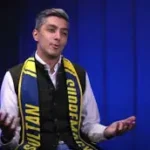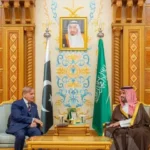On Tuesday, politicians and journalists raised questions about the government’s plan to deploy troops to Gaza as part of the International Stabilization Force (ISF) that is currently assembling.
A cornerstone of the US-brokered Gaza Peace Agreement is the establishment of the ISF, made up primarily of troops from Muslim-majority countries. According to officials close to the discussions, a government announcement on the decision is expected soon.
Since the news spread, politicians and journalists alike have expressed concern and criticism about the idea, sharing their thoughts on social media.
“Worrying”, “renamed occupation extension”
Former senator Mustafa Nawaz Khokhar called the news “worrying” and said: “Our ill-considered policies of the past haunt us in the present.”
He added: “Have we discussed and debated its pros and cons? Why does the government hesitate to trust the public?”
Meanwhile, Senator Allama Raja Nasir published a lengthy statement to
He also noted the lack of Palestinian consent to the deployment of foreign troops, saying: “Any such measure would violate international law and the basic principles of peacekeeping… The people of Gaza would rightly view the ISF not as a stabilizing force, but as an imposed foreign presence.”
Nasir added that without a clear mandate from the United Nations Security Council (UNSC), the ISF would likely operate under a US-led agreement that would “strip it of neutrality.” Additionally, he expressed concern that the plan would divide Arab and Muslim nations into “those willing to cooperate with this flawed framework.” [and] those who remain firm against the Israeli occupation.”
“True and lasting stability in Gaza cannot come from foreign boots on Palestinian soil. It can only emerge from Palestinian-led governance, reconstruction and reconciliation,” he said, urging the government to refrain from joining the force.
‘Who made the decision?’
opinion editor of International newsZebunnisa Burki, responded to a post by Ryan Rozbiani pointing out Israel’s ceasefire violations in Gaza (killing 150 Palestinians in 16 days) and asked: “How is this a ceasefire?”
“It’s not,” Burki responded, adding, “And any ‘peacekeeping’ force won’t keep the peace either, except helping Israel.”
Journalist Hamid Mir also drew attention to a report in an Israeli newspaper. The times of Israel on the likely inclusion of Pakistani troops in the ISF, demanding more details and discussion on the matter.
“Why is there silence about this report?” asked. “If it’s true, who made this decision? Why?” [is] This topic is not discussed in [the] Pakistani parliament yet?
Former human rights minister and PTI leader Shireen Mazari said in a series of posts that the plan would only help the Israeli occupation by cooperating with the Israel Defense Forces (IDF) under the command of the United States and the United Kingdom.
Mazari published a photo of the news published this morning on Sunrise with the phrase “cite the country’s strong record in peacekeeping missions” underlined, noting that “Pakistan has a strong record of peacekeeping, BUT under the UN, we opposed the Coalition of the Willing in Iraq.”
“This is denying [the] idea of [a] Palestinian state,” he added in a later post. “Nor is it simple peacekeeping. “It is the imposition of peace under a questionable Trump-Netanyahu plan!”
Meanwhile, he expressed his agreement with Senator Nasir’s statement, adding that the “plan” was aimed at preventing the creation of a Palestinian state, which was a “core commitment” of the Quaid-i-Azam.
He compared the new peacekeeping force to another “Coalition of the Willing” and said they “have never provided security or justice.”
“Wonderful decision”, but it needs “national consensus”
Former Minister of Information, Science and Technology, Chaudhry Fawad Hussain, cited the Sunrise article, calling it a “wonderful decision” but urging a national consensus before making such decisions.
“I call on those in power: take [the] nation in confidence, lower the political temper in [the] home; such decisions need a national consensus,” he said.
The force’s mandate would include maintaining internal security, disarming Hamas, securing border crossings and assisting with humanitarian aid and reconstruction under the supervision of a transitional Palestinian authority.
Officials in Islamabad maintain that Pakistan’s possible involvement arises from both moral responsibility and diplomatic necessity. They noted that Pakistan was part of the original eight-nation peace proposal conceived in late 2024 and backed by several Muslim-majority states, which formed the basis of the US-brokered Gaza peace plan finalized earlier this month.
Since the stabilization force was a key pillar of that plan, officials said, Pakistan’s participation would be a sign of consistency and credibility.








